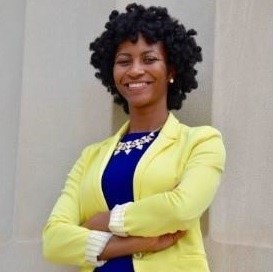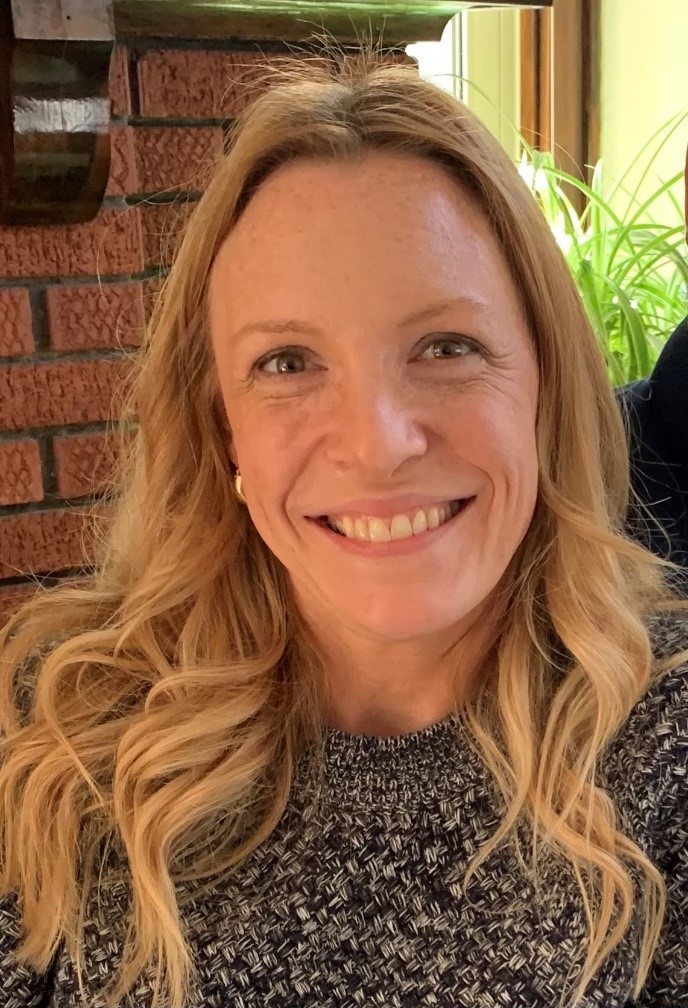Alumni stories
31 MPH students participated in the WSU virtual commencement ceremony in May. Our students typically earn their MPH degrees while fulfilling personal and professional commitments to family and employers. We are particularly proud of these graduates who also overcame obstacles created by the COVID-19 pandemic. This is a testament to their resilience, perseverance and flexibility. The stories of two of our recent graduates are featured below:
Deja Wilson, MPH 2021
 Deja Wilson, MPH, called her time as a student at Wayne State transformative. “I entered the M.P.H. program in 2019 with limited knowledge about public health but an open mind to learn as much as possible,” she said.
Deja Wilson, MPH, called her time as a student at Wayne State transformative. “I entered the M.P.H. program in 2019 with limited knowledge about public health but an open mind to learn as much as possible,” she said.
In her first semester, Wilson was given the opportunity to work with a group of her peers, talking with members of a senior living community about their health struggles as a result of living less than a mile from an incinerator. She helped curate letters to Mayor Mike Duggan and state representatives advocating on their behalf.
“From the very beginning, my time at Wayne has been one where I have directly translated the knowledge and skills that I was learning in the classroom to impact real change in the community. I have grown as a student, a leader, and now as a future public health practitioner,” she said.
Wilson hopes to continue researching health disparities among Black people and how predominantly Black churches and faith-based organizations can serve as conduits to provide intervention programs, educational aid and care to African Americans struggling with mental health issues and hypertension.
“I love that the M.P.H. program at Wayne is like an extended family. Every faculty and staff member has assisted me in making the learning process and the program as beneficial as possible, and I sincerely appreciated that,” Wilson said. “My favorite memory of my time at Wayne State University was being a part of the Curriculum Committee. As a student, you rarely get a chance to view the inner workings of course approvals, let alone provide input that could provide a better learning experience for future students. I was honored to be a part of the Curriculum Committee, where I could do both.”
Wilson will attend Princeton Theological Seminary in the fall to pursue another master's degree in theological studies. “I hope to marry my love of public health with my love of ministry,” she said.
Jessica Allen-Worley, MPH, 2021
 Fellow graduate Jessica Allen-Worley is a first-generation college student, full-time Wayne State employee, “and a proud WSU Warrior”.
Fellow graduate Jessica Allen-Worley is a first-generation college student, full-time Wayne State employee, “and a proud WSU Warrior”.
“One of only a handful of students from my high school to go to a four-year university, I attended the University of Michigan-Ann Arbor right after high school, but was sidetracked by life and did not finish my final semester before graduation. Over a decade later, married with three children, I returned to U of M and graduated with a B.S. in Psychology in 2015. Shortly thereafter, I accepted a position at WSU’s Center for Urban Responses to Environmental Stressors. It was there that I developed a passion for public health and chose to enroll in the M.P.H. program.”
Wayne State and Detroit are now forever home to her. “Through the incredibly supportive environment at CURES and the M.P.H. program, I had the opportunity to reclaim a part of my life that I thought I had lost. It has been a lot of hard work to balance family, work and education, and a global pandemic, but my experience has been one of perseverance and tremendous support,” she said. “I feel incredibly proud, grateful, fulfilled and accomplished. The M.P.H. program has helped me to develop skills that have grown my research career and deepened my love for Detroit. I feel as though I have found my place and my people in the world of public health. I have a deep sense of purpose and new self-confidence. Most of all, I feel deep gratitude for the support and encouragement of my family and colleagues, and for the knowledge that my own and my children’s futures are forever changed for the better.”
She will continue at CURES, leading efforts in Geographic Information Systems to explore the impact of chemical and non-chemical stressors and their impact on human health. She is now researching doctoral programs that combine her interests in environmental health, health disparities and geospatial analysis.
“I have many fond memories of my time as an M.P.H. student, but I think the best was when my 8-year-old daughter was talking to a friend about what her mom’s job was. I heard her say, ‘I think my mom is a health person or a scientist or something?’ Then, she turned to me and asked, ‘Mom, are you a scientist?’ I paused for a moment, not knowing exactly what the answer to that was, and then replied, ‘Yes, honey. I think I am a scientist.’”